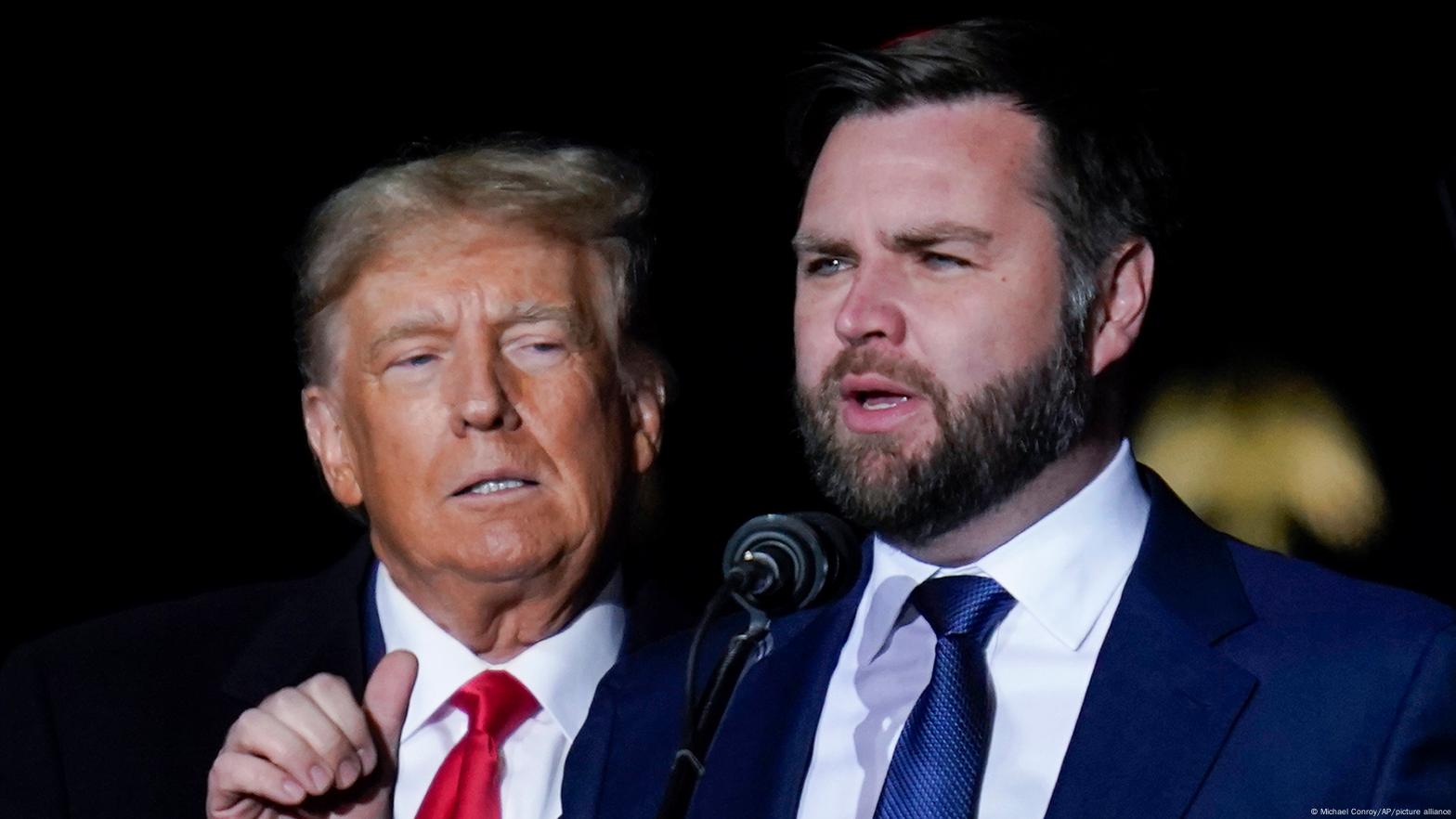Donald Trump made his first public appearance at the Republican Convention since a bullet grazed his ear during a campaign rally last weekend and he was rushed to the hospital. As he walked down the hall with a bandage covering his ear, the audience greeted him with loud applause. Some shed tears, and others hailed him as a survivor.
Ursula von der Leyen, the acting president of the European Union (EU) Commission, wished him “a speedy recovery.” “Political violence has no place in a democracy,” she said in a post on social media X.
But democracies in Europe have long been concerned about the prospect of Trump’s return. There is a palpable fear that, in an attempt to quickly resolve the crisis, Trump could pressure Ukraine to cede territory to Russia and, in doing so, encourage Russian President Vladimir Putin to expand further and threaten the Baltic nations.
Rafael Loss, a fellow at the European Council on Foreign Relations (ECFR), said that if Trump is in charge of affairs in Washington, it could trigger “a crisis of political leadership.” The United States has often led the Western alliance on key global issues.
“If Trump decides to make some kind of deal with Putin to end the war in Ukraine and throw Ukraine onto the rails, that will seriously increase the threat to the rest of Europe,” Loss added.
Will Trump withdraw the US from NATO?
Trump could even pull the United States out of NATO, abandoning Europe to Putin’s whims. Europe’s fears were heightened when John Bolton, one of Trump’s top security advisers, said in an interview earlier this year that he was convinced Trump would withdraw his country from the North Atlantic Treaty Organization.
Moreover, if Trump engages with like-minded far-right groups or politicians in Europe, it could strengthen them at the expense of the more liberal or centrist approach currently favored by the United States and several countries in Europe. “In addition, the United States contributes several military hardware capabilities to NATO,” Loss added, some of which are critical to Europe’s defense and are not manufactured there.
Connecting with Trump just in case
For at least a year, European capitals have been grappling with the question of how to deal with Trump if he returns to power. Secretly, many hope he will not win, or that he will adopt a more accommodating attitude toward Europe when in power.
“The truth is that there is nothing clear on the table because, in part, nobody wanted to send the signal that they were anticipating a Trump presidency or a Trump withdrawal, even though it has been a credible scenario for many years,” said Pierre Haroche, associate professor of European and International Politics and associate fellow at the Jacques Delors Institute.
As Trump’s popularity ratings rose, some mainstream parties in Europe began to reach out to his network. The failed assassination attempt, as well as the TV debate debacle in which Biden appeared incoherent, are said to further boost his chances.
Some, like the deputy leader of the conservative CDU faction in the German parliament, think that “the same mistake as last time, when he was president and no one really had contact with his team, should not be made again,” he told DW.
Division in Europe if Trump wins?
Some experts agree that Trump’s cold shoulder toward Europe is causing it to become more concerned with managing its own defense, which is planned with the United States’ unwavering support in mind.
Haroche, however, pointed out that the worst consequences of Trump’s re-election could be disunity in Europe. “The real risk is that everyone is looking out for their own interests and is unable to present a unified position and act in a cohesive manner” in the face of common threats, such as Russia.
At the convention, Trump revealed JD Vance as his vice presidential candidate, another fan of Viktor Orbán, the Hungarian prime minister. Vance has been described by the press as Trump’s heir to the far-right MAGA movement and bad news for the transatlantic alliance.
Vance’s choice as vice presidential candidate: a message for Europe?
“I don’t really care what happens in Ukraine one way or the other,” Vance said on a podcast with Steve Bannon in 2022. At the Munich security conference earlier this year, he said the U.S. security focus will shift to the Indo-Pacific and called on Europe to manage its own affairs.
“There are a lot of bad guys around the world. And right now I’m much more interested in some of the problems in East Asia than in Europe,” he said at the conference.
Ricarda Lang, co-leader of the German Green Party and co-panelist at the conference, said Vance left no doubt that Trump would “hand Ukraine over to Putin.”
Yesterday, X wrote that his choice as running mate is “worrying for Europe.” In an interview with DW, German lawmaker David McAllister explains why Vance’s nomination has raised alarm in Europe.
‘He is strongly opposed to further US support for Ukraine in its fight against Russian invasion. Secondly, he is in favour of additional tariffs on imports from Europe. And thirdly, he has criticised Europe for being overly dependent on the euro,’ he said.
US defense industry vs. isolationism
Experts said Trump and Vance’s isolationist policy clashes with the interests of the US defense industry. If Trump wants to remove the US protection umbrella, then Europeans may be less inclined to buy expensive defense equipment from American companies.
Haroche said it has been an indirect way of buying “American goodwill and support. Trump might find it difficult to reconcile the policy of ‘America first’ with ‘the economy first,’” Haroche said.
Keep reading:
- When Donald Trump unintentionally became “the greatest poet of his generation”
- RNC stages total unity around the figure of Donald Trump
- LGBTQ advocates slam JD Vance for supporting anti-community policies
